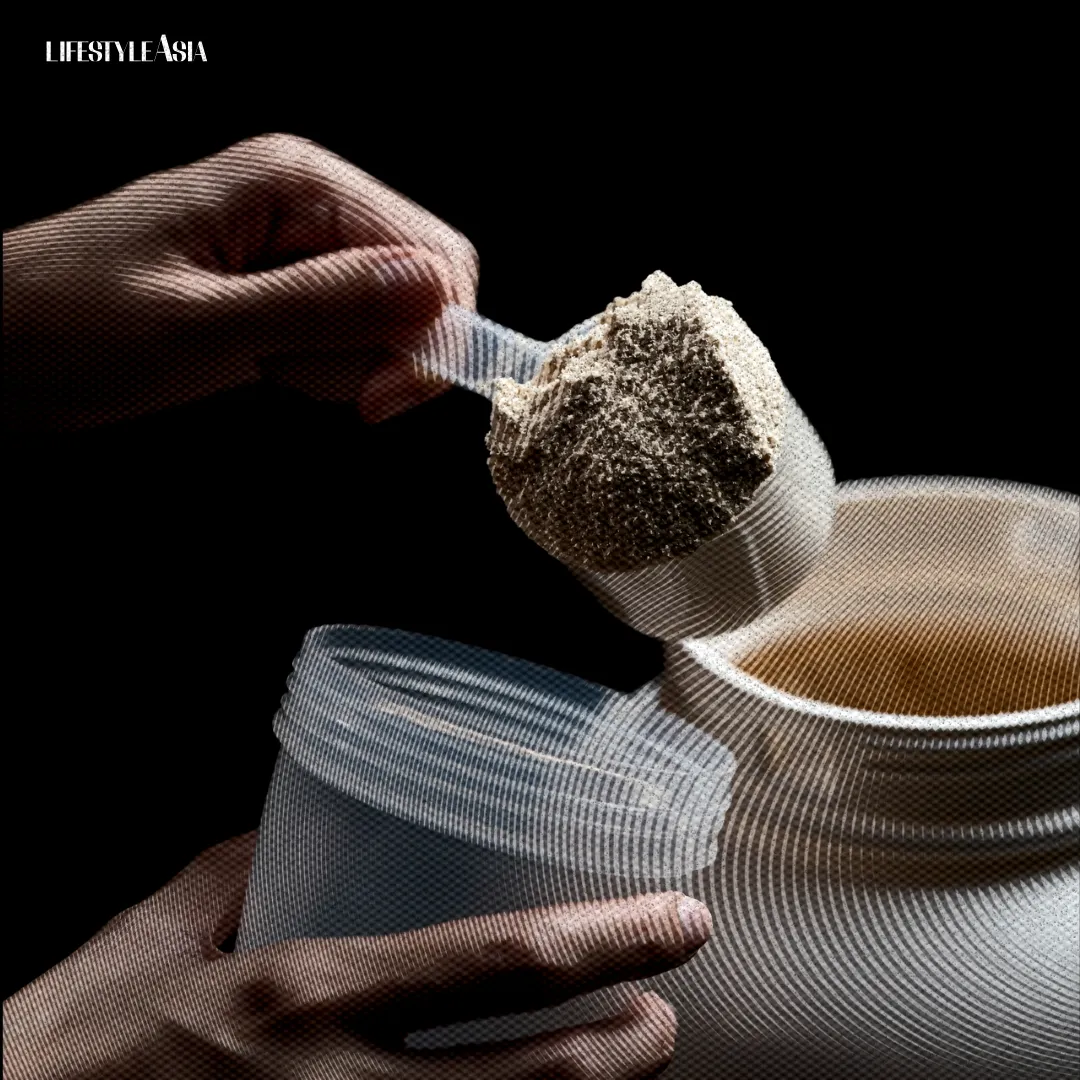From bodybuilders to influencers, creatine has become a rising supplement in the world of health and sports. But when should you take it—and what does it actually do?
Creatine has long been a go-to in the world of sports nutrition, but in recent years, it’s broken out of the gym and into the mainstream. From weightlifters and runners to students and older adults, more people are turning to creatine not only for physical performance, but also for its potential brain-boosting benefits.
So, what is it, what does it actually do, and is it worth adding to your routine?
What Does Creatine Do?
Creatine is a naturally occurring compound that your body stores mostly in muscles and in smaller amounts in the brain. Its main job is to help your cells produce quick bursts of energy by regenerating ATP, the molecule your body uses for fuel. Supplementing creatine increases these energy reserves, which can lead to improved strength, power output, and faster recovery between workouts. That’s why it’s been a favorite among athletes for decades.
The benefits don’t stop at physical performance. In recent years, creatine has gained attention for its effects on the brain. Research has linked it to better working memory, faster mental processing, and improved attention, especially in situations of mental fatigue or sleep deprivation. A study from the University of Sydney found that vegetarians who supplemented with creatine showed significant improvements in memory and IQ-related tasks. Other research has explored creatine’s potential in supporting neurological health, with promising early findings in conditions like depression and Parkinson’s disease. There’s also evidence that it may help older adults maintain cognitive sharpness and prevent muscle loss, making it a potential ally in healthy aging.
In short, creatine is no longer seen as just a muscle-building supplement–it’s becoming recognized as a well-rounded performance enhancer for both body and brain.
READ ALSO: Everything You Need To Know About the HYROX Hype
Who Should Take Creatine?
While creatine is widely associated with bodybuilders and athletes, its benefits extend far beyond the weight room—and the group of people who could benefit from it is much broader than you might think.

Strength and Power Athletes
Anyone involved in high-intensity, short-duration sports, like weightlifting, sprinting, or football, can benefit from creatine. It helps increase strength, power, and explosive performance, while also supporting quicker recovery between sets and workouts.
Endurance Athletes
Though not as directly impactful for endurance performance, creatine can help runners, cyclists, or swimmers improve recovery, preserve muscle mass, and support high-intensity bursts within their training.
Beginners Starting Resistance Training
If you’re new to strength training, creatine can help accelerate early gains in strength and muscle. Studies show that combining resistance training with creatine supplementation leads to more significant improvements in muscle mass compared to training alone.
Vegetarians And Vegans
Creatine is found naturally in meat and fish, so those on plant-based diets often have lower baseline levels. Supplementation can bring their levels up to par and enhance both physical and cognitive performance. Research has shown particularly strong mental performance improvements in vegetarians who take creatine.
Students And People Under Mental Fatigue
Some early studies show that creatine may support mental clarity and working memory, especially in situations involving sleep deprivation or stress. That makes it an interesting tool not just for athletes, but also for students, shift workers, and others looking for a cognitive edge.
Women
Although often marketed to men, creatine is equally effective and safe for women. It can help support lean muscle development, energy, and even hormone-related muscle loss (such as during menopause), making it a useful addition for women at any fitness level.
In short, if you’re physically active, mentally taxed, aging, or simply want a little extra support for performance and recovery, creatine could be a smart addition to your supplement stack.
READ ALSO: LA Asks An Expert: Wait, Do I Have PCOS?
How To Take Creatine
The most well-researched and widely recommended form of creatine is creatine monohydrate. It’s safe, effective, affordable, and easily absorbed by the body.
There are two common approaches to taking creatine:
The Loading Method: This involves taking about 15 to 20 grams per day, split into four to five smaller doses (e.g., five grams each), for the first five to seven days. This quickly saturates your muscles’ creatine stores and can help you see performance benefits faster, often within a week.
The Daily Maintenance Method: If you prefer a simpler routine, you can take three to five grams once per day, consistently. This method still results in full muscle saturation, but it typically takes about three to four weeks to achieve the same effect as loading.
Both approaches work, and the one you choose depends on how quickly you want to see results and how sensitive your body is to supplements. Some people experience mild bloating or stomach discomfort during the loading phase, so those new to creatine might prefer the slower, steadier method.
Creatine can be taken with or without food, but absorption may be slightly enhanced when combined with carbohydrates or a post-workout meal. While timing isn’t critical, many people choose to take it after exercise when nutrient uptake is typically higher.
But no matter what approach you take, consistency is key. Missing a few days won’t ruin progress, but regular daily intake is what builds and maintains optimal creatine levels in the body.
Who Shouldn’t Take It And What To Look Out For
Creatine is widely regarded as the most studied and safest supplement available, with decades of research backing its effectiveness and minimal risks for healthy individuals. Creatine is generally safe for healthy people, but those with pre-existing kidney or liver conditions should avoid it or consult a doctor before starting. It’s also wise for pregnant or breastfeeding women to get medical advice first, as research in these groups is limited.
Some users experience mild side effects like bloating, stomach cramps, or diarrhea—especially during the loading phase. Starting with a smaller dose and drinking plenty of water can help reduce these issues.
If you notice unusual symptoms or discomfort, stop taking creatine and talk to your healthcare provider.
Creatine isn’t just for bodybuilders anymore; it’s one of the most studied and reliable supplements on the market, with benefits that go beyond muscle. Whether you’re looking to level up your workouts, sharpen your focus, or simply support healthy aging, creatine might be worth considering. As with any supplement, it’s not magic. Paired with a solid physical and nutritional foundation, it can help you perform at your best.





